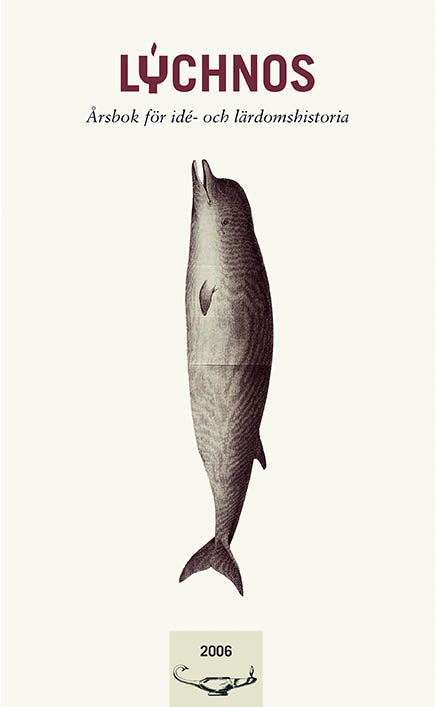Filosofi och ickefilosofi
Kampen om filosofibegreppet 1700/1800 mot bakgrund av tidens filosofihistoriska ansatser
Abstract
In scholarship on "the philosophy of the philosophy of history", the question of what effect the philosophy of history has had on reflections on the very concept of philosophy is often ignored. This essay focuses on the effect the philosophy of history had on the debate in idealist and other philosophical circles in Germany at the end of the eighteenth-century, in particular, as seen in the work of J. G. Fichte, Novalis, F. Schlegel, F. H. Jacobi and J. G. Hamann. The focus is not on the literature or even theories about the philosophy of history, in influential figures such as J. J. Brucker, D. Tiedemann and W. G. Tennemann. Rather, the essay draws upon the new features of the philosophical concept that could only come from a philosophy aware of its own history in a new sense, such as, for example, Kant's definition of philosophy as "a possible but not yet existing science", and hence the conception of philosophy as an untouchable "in concreto".
The essay brings together three themes that are apparent in the debate concerning philosophy's potential as a science and its call for an unconditional foundation for knowledge and reason. The first is the notion of a "non-historical" history in Kant and Hegel. The second is the desire to merge life and philosophy in Fichte and the romantics (Novalis and Schlegel), where Fichte's notion "pragmatic history of the spirit" differs form the romantic project of merging philosophy with literature (or poetry). The third theme is the clash between foundationalist philosophy and its historically minded opponents (Hamann and Jacobi), who, as a response to the lack of reflection on both reason and language in "recent philosophies" call for a "non-philosophical" stance. The story ends with a reflection upon the history of this history, and the current, supposedly radical claim that philosophy has come to an end.
Downloads
Publicerad
Nummer
Sektion
Licens
This work is licensed under a Creative Commons Attribution 4.0 International License. The copyright for the work published in Lychnos remains with the authors.


